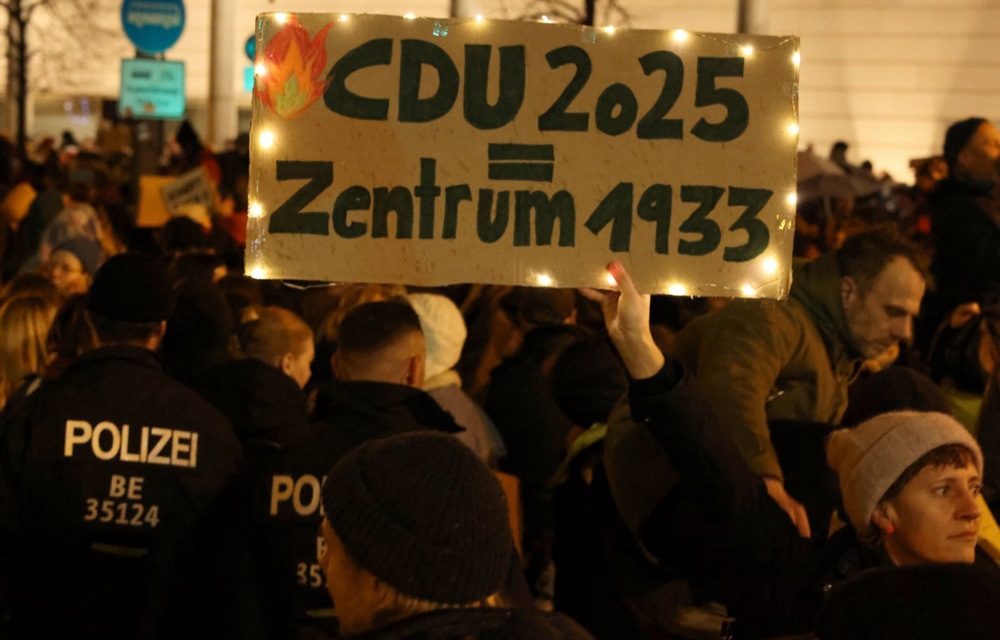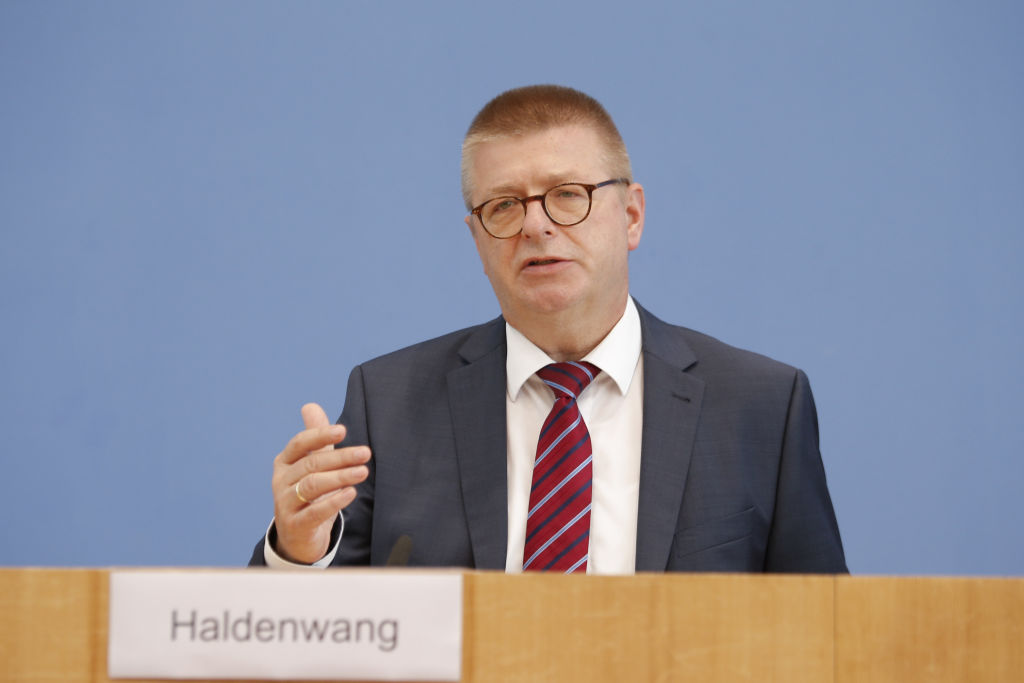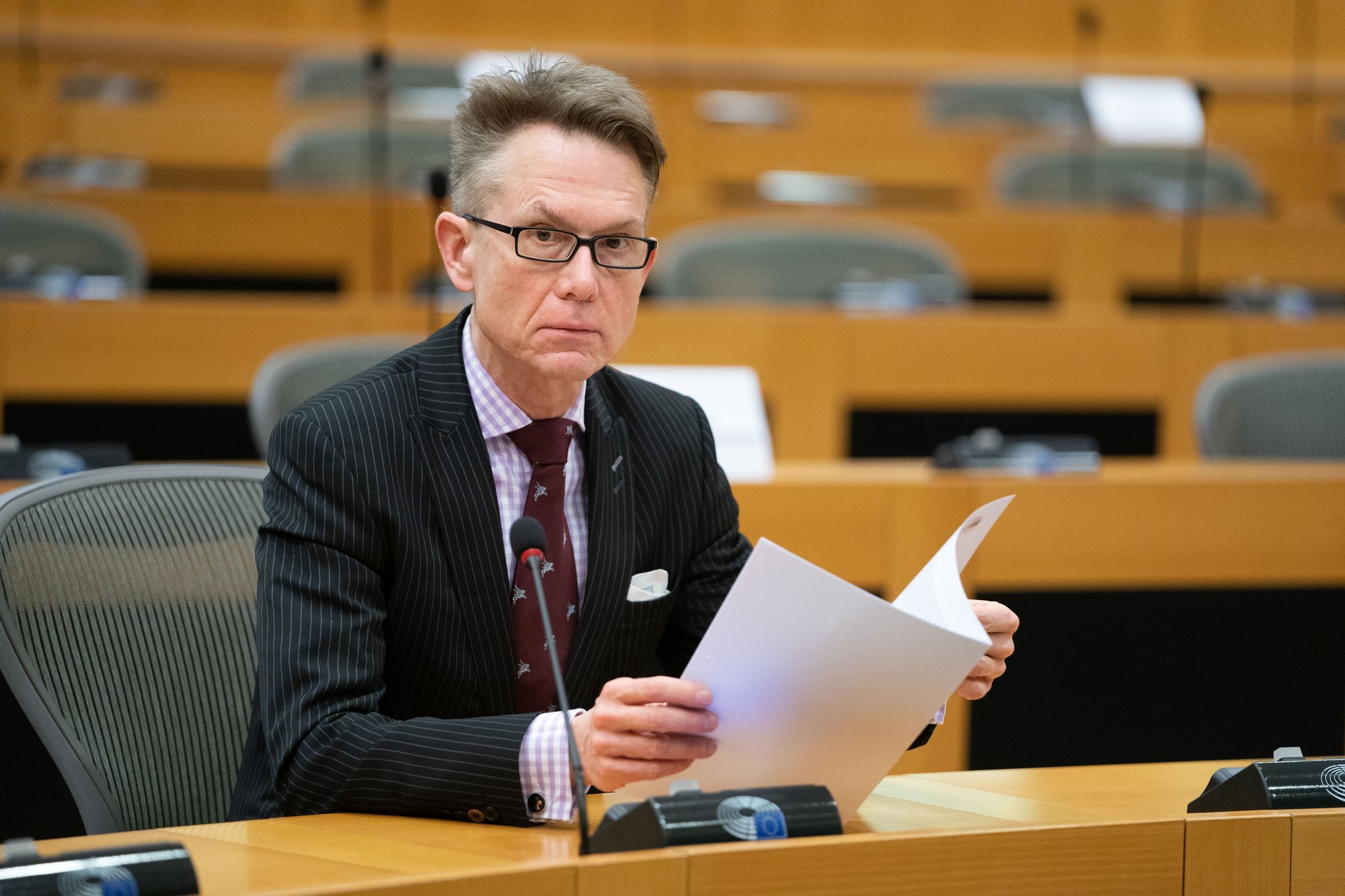The German Federal Office for Protection of the Constitution (Bfv) categorised the Alternative for Germany (AfD) party as “definitely right-wing extremist“, sparking widespread calls for a ban on the party.
A survey by German newspaper BILD published on May 3 revealed that some 48 per cent of respondents supported a complete ban on the AfD, including its dissolution, exclusion from elections and the removal of its MPs from the Bundestag, or parliament.
By contrast, 37 per cent opposed such a ban, while 15 per cent remained undecided or indifferent.
Banning the right-wing party could backfire, though. According to the same poll, 39 per cent believed that outlawing the AfD would damage Germany’s democracy rather than protect it.
The Bfv classification placed Alice Weidel’s party under intensified surveillance and branded its ideology as incompatible with Germany’s constitutional order.
It came at a politically sensitive moment: Latest polls showed the AfD as the leading party nationwide, a first in its history.
In response, the AfD is filing a lawsuit against Germany’s domestic intelligence agency, accusing the Bfv of politically motivated overreach, the party announced on May 5.
The German Federal Office for Protection of the Constitution (BfV) has announced it categorised the Alternative for Germany (AfD) party as “definitely right-wing extremist”.https://t.co/R4z2iKmZYd
— Brussels Signal (@brusselssignal) May 2, 2025
The ruling by the Bfv has also prompted scrutiny of AfD members employed in public service and triggered discussions about stripping the party of its access to State funding.
Bavarian interior minister Joachim Herrmann (CSU) told BILD on May 3 that officials “must examine what consequences this classification must have for the activities of AfD members in the public service”.
He added that it may also be time to review whether the party should continue receiving public money. He argued hat the Bfv decision also “gives cause to examine whether the AfD can be excluded from State party funding on this basis”.
Greens party politician and Bundestag Vice-President Katrin Göring-Eckhart on May 3 urged the Constitutional Court to investigate banning AfD as a party.
The AfD could be excluded from State party funding on that basis.
“A confirmed right-wing extremist party with aspirations against the free democratic order is a threat to democracy in our country. The Federal Constitutional Court should review a ban on the AfD,” she said on X.
Still, not all have been in favour of pursuing a legal route to negate the party.
Thorsten Frei, an MP with the Christian Democratic Union and the incoming head of the Federal Chancellery, called for a political rather than judicial strategy: “We must fight the AfD politically, not legally,” he said in an interview with The Pioneer news outlet published on May 5.
While the German Government weighed its legal options, segments of civil society have already taken action against the right-wing party.
During the Protestant Church Congress in Hanover on May 3, a resolution called “Ban AfD now” was adopted.
That urged the Bundestag, Bundesrat, and the federal government to request a ruling from the Constitutional Court on the party’s legality.
The resolution went further, urging church leadership to commit all available resources to the campaign.
This marked another chapter in the growing resistance to the AfD from religious institutions. Christian organisations have repeatedly voiced opposition to the party.
During the European elections last year, the Anti-Fascist Churches movement campaigned that AfD membership was incompatible with Christian values and should disqualify individuals from roles in the Church, its welfare arm Diakonie and organisations such as Caritas.
“The continued presence of AfD supporters in church institutions is a scandal,” a statement on the group’s petition website read.
“If extremist forces like the AfD are allowed into our spaces, we cannot call them safe and that is unacceptable.”
Germany’s Bundestag President and CDU MP Julia Klöckner has criticised the churches’ involvement in politics. https://t.co/mujG97Fuag
— Brussels Signal (@brusselssignal) April 23, 2025





